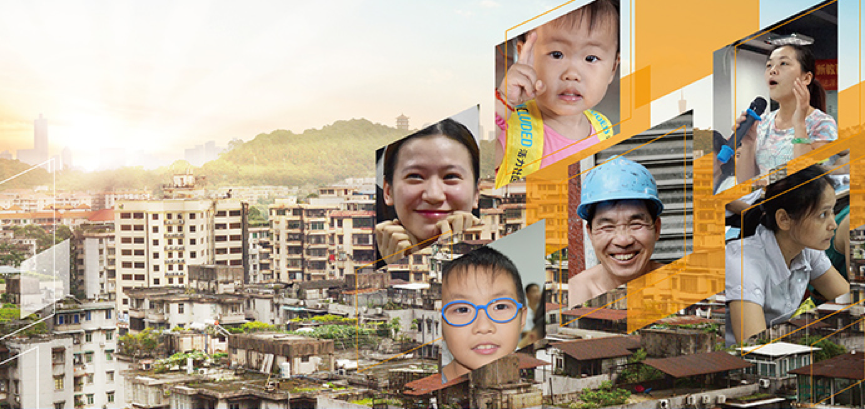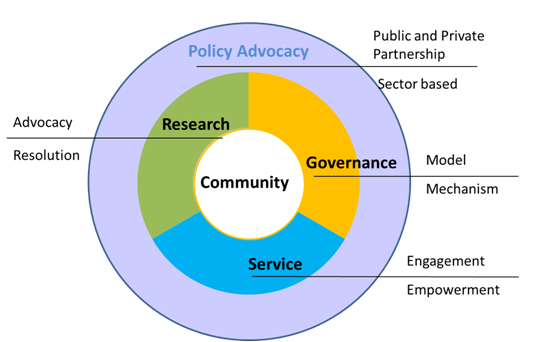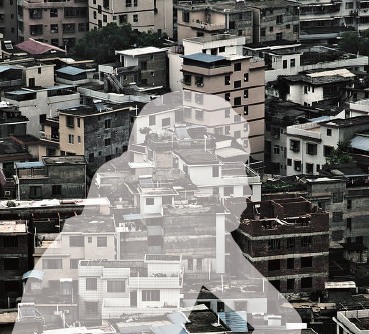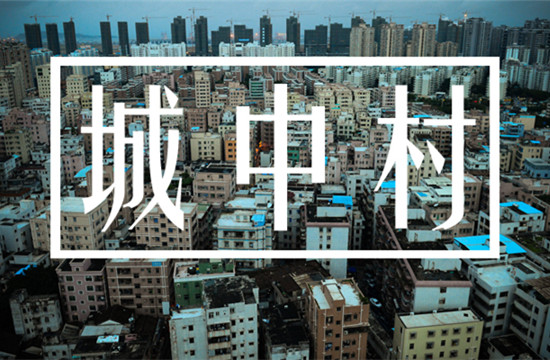
Introduction

FAZE is a five star or so-called five A (top credit authorized according to official standard)social organization in China, formally registered in Guangzhou Bureau of Civil Administration in August 8th, 2013. It aims at promoting justice in the process of China’s Urbanization which mainly focusing on the rights and welfare of migrants. FAZE roots itself deeply in urban villages and tries to recall the confidence and esteem of the migrants and empower them to civic engagement, dialogue with government and local people through community education and community work. With two years practice, FAZE evidenced the change of migrants and the change of migrant community. FAZE's experience has been widely reported by well-known press including but not limited to Southern Weekly, People Daily, Xinhua Net and so on.
Vision:Thriving together engaged, empowered and enriched migrant communities.
Mission:Functioned as a platform, we channel government and private funding and resources to meet basic needs of the migrant communities. By working with street office, local migrant leaders and activist, non-profit organization, we cultivate the full engagement of the citizens.
Value: Justice, Collaborative, cooperatinve and Shared.
Methodology: Action + Research + Advocate
Slogan: let migrant people full of hope
Background
Since the dawn of China’s Reform and Opening-up Policy, marketization has driven massive rural population to the urban industrial and service sector. In the cities, however, the public resources available for these rural migrants are allocated through the decades-old institutional legacy, Household Registration System, according to which one’s access to public services is tied to his or her registered residency – in many cases his or her birthplace in countryside. Administratively excluded from the urban social provision, culturally discriminated against by urbanites and socially atomized by the very process of migration, rural migrants haven been, and still are, a major disadvantaged group in China’s booming metropolises.
In the cities, many migrants live in neighborhoods locally known as “urban villages,” commonly marked by high population density, insufficient infrastructure, scarcity of public space, and difficulty of governance. As a result, most migrant communities suffer from crimes and hygienic issues. These issues challenge both migrants and the local government: on the one hand, they prevent the former from building sustainable urban life; on the other, they increase the cost and risk of governance.
Since 2014, FAZE has been devoting itself to serving migrants, facilitating community engagement, and supporting the migrants-government partnership. With its advanced research capacity, FAZE is able to identify the immediate needs of the community and in accordance provide tailored services; in the process of service and community education, it succeeds to build social connections among migrants. Leadership cultivation is then provided to potential community leaders identified in the emerging social networks, and the deliberative platform between migrants and the local government allows the community members to participate in grassroots governance. Starting by personal empowerment and through community engagement, FAZE’s model pursues the accomplishment of more just, inclusive, and efficient urban governance for the rural migrants.
Methods
Based on in-depth research of the basic needs of specific migrant neighborhoods, we start developing communities by providing tailored communities services while encouraging individual migrants to self-organize in the service programs.
With professional team-building techniques, we increase migrants’ mutual understanding and experience of collaboration in their self-designed community education courses and volunteer programs.
We assist active members of the aforementioned programs to acquire leadership skills so active volunteers eventually turn into community leaders.
We advise community leaders and the local officials to establish a deliberative process, and hence encourage migrants’ political participation and enhance grassroots governance.


Research and Policy Advocacy
FAZE specializes in community study that investigates basic and urgent needs of the community members, proposes solutions for community building and social change agenda , and providesanalyses and evidencesfor decision making of community shareholders.
FAZE also generates policy reports for the government. FAZE has set up a multilevel and diversified channels to a wide range of government organs, from the central government to the very local level. FAZE’s connections to universities also allows it to collaborate with scholars on policy proposals to the government.
FAZE’s practice and intervention at community level functions like social experiments, it offers government a feasible and measurable social change model. For example, FAZE’s practice in the San Yuan Li Street,a famous migrant community, has been adapted by Guangzhou Government and has been writteninto social policy and will be introduced widely in Guangzhou this year.

Range of products:To carry out the urbanization, social welfare, community governance services and research;urban and social welfare project training, consulting and communication,capacity building to support social NGOs;funding seminars and exchange activities in cities and public welfare.
Brand activities:Firstly, FAZE has already made a great effort in the research of floating population and community education and community service;Secondly,It has cultivated three brand projects ,which is the migrant workers early childhood parenting, the first village in the city of Sanyuanli Community College and the school of personnel integration. And for three consecutive years to undertake the Guangzhou public key projects of venture philanthropy,Guangzhou Municipal Social Work Committee grassroots social governance innovation pilot projects and the establishment of safe non-toxic community project,Guangzhou City Bureau to build the integration of the pilot project.People's daily, Xinhua, people's daily,Is a magazine, the Central People's broadcasting station, Nanfang Daily, Southern Metropolis Daily, Guangzhou daily, Yangcheng Evening News and many other mainstream media coverage of FAZE has been reported.
1.First founded the village of migrant workers happy community vitality in Guangzhou , the early childhood parenting project has become popular with migrant workers .
2.Founded the Sanyuanli Community College which is China's first rooted in the village to provide training for migrant workers and the first school of personnel integration.
3.Creatively in Sanyuanli to open the flow of people to integrate the community five one project, and explore a new model of floating population community integration.
Service:
Early Child Development Program(ECD)in the Migrant Communities
It takes a village to raise a child
According to the latest National Population Census (2010), there are 35.8 million migrant children. In other words, [a1] there are 13 migrant children in every 100 children. At the same time, the latest Report on China’s Migrant Population Development (2016) shows an increasing trend of migrants migrating together with spouses and children, as opposed to the previous, more individualized migrant pattern. Being in the city and disadvantaged in both economic and educational terms, migrant parents oftentimes find themselves isolated and helpless when seeking to better educate their children. This sense of helplessness is worsened by the atomized and isolated social circumstance in the migrant community. Migration experience cuts off many new parents' ties to their original families, whereas the inferior infrastructure and lack of public life in the "urban village" they live make it difficult for them to connect to each other. Social support during children's early childhood is therefore a scarce resource in many migrants’ life.
We apply a children-family-community approachby providing scientific theory and concept of early child development, create and strengthen young-mother-network, and stimulate community engagement in a child-friendly culture. To this day, we have served 440 days, with 352 people enrolled in our program, plus over 3000 people indirectly benefited.With our highly standardized and easy-to-operate teaching and management system, we are able to introduce our program to benefit more migrant communities. There are currently five communities national wide working together with us. By the end of this year, our network plans to add up to 10 partners.
Stories: Ms. Huang Ling is a new migrant mother of a two-year old girl. Grown up as a leftover child, she decided that her daughter would not suffer a lonely and helpless childhood. However, she didn’t know how to raise her little girl and thus,during the most difficult time, she couldn’t help to yelling at her daughter. She joined our program as her last hope. After four months of class, she evidenced the change of both her daughter and herself.More importantly, she no longer found herself alone in the journey of educating her child. In order to help more migrant mothers like her, she became a star ECD teacher and started devoting herself in learning the theory and practice of early child development.
Cosmetics Classes in the Cosmopolis
Beautiful Mind, Glorious Future
Sponsored by O’Loreal, this class aimed at equipping migrant women with more confidence, cultivatingwomen leadership, and exploring more career possibilities. The enrolled migrant women take 80 classes in which they were trained professionally and systematically. A national wide make-up contest is held after the completion of the class to test and exhibit their skills. To this day, we have trained over 200 women and complete 160-hour-study. In the process of adjusting to urban life, as our rudiment research outcome shows, women take more proactive attitudes than men. Nevertheless, they are also more vulnerable to and disadvantaged by the traditional views that emphasizes docility and obedience. The cosmetic classes lighten up their life and encourage them to realize their value.
Their stories: Ms. Mei Zhen is a full-time migrant mother. She quittedher job after the birth of her child and found it difficult to go back to work after a couple years. Once joining our cosmetics classes, she was elected the class leader. She not only enjoyed learning make-up techniquesbut also learned leadership skills in organizing class members and encouraging them to participate in community activities. After a number of classes, she reported that her son admired a glowing and beautiful “new mom” and decided to become a makeup artist.
Tell Me Your Story and Write it Down
You Raise Me Up
All migrants come to cities with a simple dream to change their destiny. Due to the distortedregime of resource allocation, however, they arelabelled as illegitimate resource competitor, uncultivated peasants who didn’t know urban culture, potential criminals, and invisible residents. Despitetheir assiduous work ethicsand contribution to the city economy, they find it difficult to speak for themselves and express who they are. TheMigrant Writing Class invited a college professor to teach migrants writing skills. In this class, on the one hand, they improved their communication skills necessary foroccupational development;on the other, they established self-esteem through reflecting on and writing down their personal stories. With the aid of the writing class, they started to cherish their effort to the family and society. The class was designed with collective training, group study, field trip and personal mentoring. When the class ended, migrant students produced 50,000words in the form of biographical writing. All of them felt inspired and many of them conducted their first field trip to the city’s famous landmarks and attractions – after 10 years of living in the city. In the class, migrants went beyond their birthplace-based social circlesto makefriends from different places and different walks of life. One fifth of them started new careers. All of them were inspired to become active community volunteers and more engaged in the community activities.
Mr. CaiLan is working in the printing industry with elementary education.When he graduated from the writing class, he received an applause from his son, who was so proud of CaiLan’s becoming a community college student. He now serves as a regular community volunteer in improving the safety and environment of the community.
Speak It Out Loudly
I Have a Dream
Living and working in the city, migrants are in general excluded fromurban political participation. They have no right to vote or channels to express their causes. In spite of those limitations, migrant leaders and activists struggle to support their community members, collaborate with the Street Office for the benefit of the community, and some of them even become DistrictRepresentatives. They feel the strong need to rightfully express themselves and persuade others. The Public SpeechClass comes out to meet this end. The class focuses on how to deliver a public speech and how to communicate with audience. In this class, community leadership is also established. We tried to empower more migrant leaders who can lead other migrants to pursue community changes.
Business English
Nail the International Deal
For many migrant small business owners, international business is more lucrative than thdomestic business. Migrants want to grasp this market opportunity despite the language barrier. With the previous experience in FAZE, a group of migrants spontaneously gather together to organize a Business EnglishClass. FAZE supports them todesign the class and to recruit foreign teachers. After the three-month coursework, many migrants proudly announcedtheir love of studying English and that their business grew rapidly. More importantly, they built up an online study group, practicing and learning English every day.
Stories: Zhang Gang is a printing agent who oftentimes runs into Guangzhou-based international businessmen. To better communicate with his client, he got enrolled in our Business English Class. During the three-month class, he not only practiced business English but also made friends with foreign teachers, especially Ali. Although the program offers a bilingual interpreter for them, Zhang Gang and Ali seemed to prefer talking to each other on their own. Zhang Gang utilized the English skills he learned in the class while assisted by drawing on his notepad. He also downloaded a dictionary on his phone to better understand what Ali said. They became “bros” by the time the class ended. Zhang Gang and Ali are still in touch after Ali left Guangzhou.
Connect and Volunteer
Together We make a Home
Community volunteers has changed their stereotype image of retired women with plenty time on their hands caring about dag loss, lover’s quarrel and so on. In our community, we try to attract volunteers from all walks of life including young mothers with their kids who take ECD class, migrant youth who just enter into society as a freshman. We equip volunteers with team work techniques, motivate them with good cause, and award outstanding volunteers to strengthen their sense of self-fulfillment. In Sanyuanli Street, volunteers set up a volunteer day on the last day of a month. The areas of volunteer work include environment maintenance, caring for the elder people, taking care of left-over children who visited their parents in summer, and fighting drug abuse.
Stories: Zhang Rong came from Anhui Province. She actively attributes to community as a volunteer because she could perceive herself as a deserving member of the city. She told me that no matter what locals think about her involvement, she feel self-satisfied and inspired by the acknowledgement of the community.
Governance
Migrants-government Partnership in GrassrootsGovernance
From Mutual Benefits to Public Good
After 30 years of economic reform and passive population relocation, the Chinese urbanization is facing a new circumstance under which divergent population make up and divergent interests are still searching for channels to enter neighborhood level public administration. Both the migrants and local urbanites are trying to make their voices heard by the decision-making agencies, but the platform is still under construction. Through advocacy to various levels of local government, from the municipal, district, street office and resident committee, FAZE participate in establishing a Joint Neighborhood Advisory Council. The Council is a neighborhood-level platform of dialogue and negotiation. Council Representatives, half from local residents and half from migrants, come together to discuss local issues and solutions, with the presence of local officials. Collectively the migrants, the locals and the officials identify community needs and come up with proposals to make changes.
Since the establishment of the Council, FAZE has been playing a critical role in every step of the process. Not only that FAZE came up with the idea in the very beginning, but it also continuously proposed the idea to the municipal, district and street level government. At the community level, FAZE started the first experiment of advisory council in Sanyuanli by drafting the first policy document, designing the deliberative procedures, and setting up workshops on communication and negotiation for migrants. Once initiatives are developed, FAZE assisted the Council and the local government in mobilizing local resources to reach the goal.
In this Council, Representatives come up with initiatives that will be considered by the government officials; they achieve neighborhood consensus that will be promoted in the community. They work towards neighborhood agreements by which the community members will be bound. Through constant dialogue, the platform not only solves community issues and brings community changes, but more importantly, does so in a way that enable migrants and locals to exchange ideas and build mutual trust. A sense of community is hence developing over time, and community members stimulate community resources through civic engagement.
Since 2016, the Council meeting has been held six times, the issues discussed have included the building of a community garden, a resolution on prohibiting littering from tall buildings, a monthly “volunteering day” in the community, as well as reinstallation and enhancement of electric lines.
Stories:Lao Li is a Guangzhou local resident. After participating in neighborhood advisory conference, he changed his stereotypical image of migrants and found out that migrants have contributed a lot in the community and he realized that he didn’t engage enough in the community.
Zhu Xiao Ying is a middle aged migrant woman and a vigorous community volunteer who enjoys helping neighbors. After nominated as neighborhood representative, she started to practice her leadership to initiate environment improvement proposal which calls for more people to understand garbage classification and self-consciously committed to.
Awards:Wuzhiping,the director of FAZE won 2015 China Public Responsibility Award nomination, the social organizations in Guangzhou Outstanding Director Award; Sanyuanli Community College of migrant workers into the community project by Guangzhou City venture philanthropy brand project; Sanyuanli village grassroots collaborative governance pilot project in Guangzhou city in 2015 won the Social Innovation Award; Sanyuanli Community College in Guangzhou city in 2015 thirty Local Chronicles events; migrant workers in Sanyuanli community integration project won the first 2016 Guangzhou Social Innovation Award "outstanding social innovation project".
